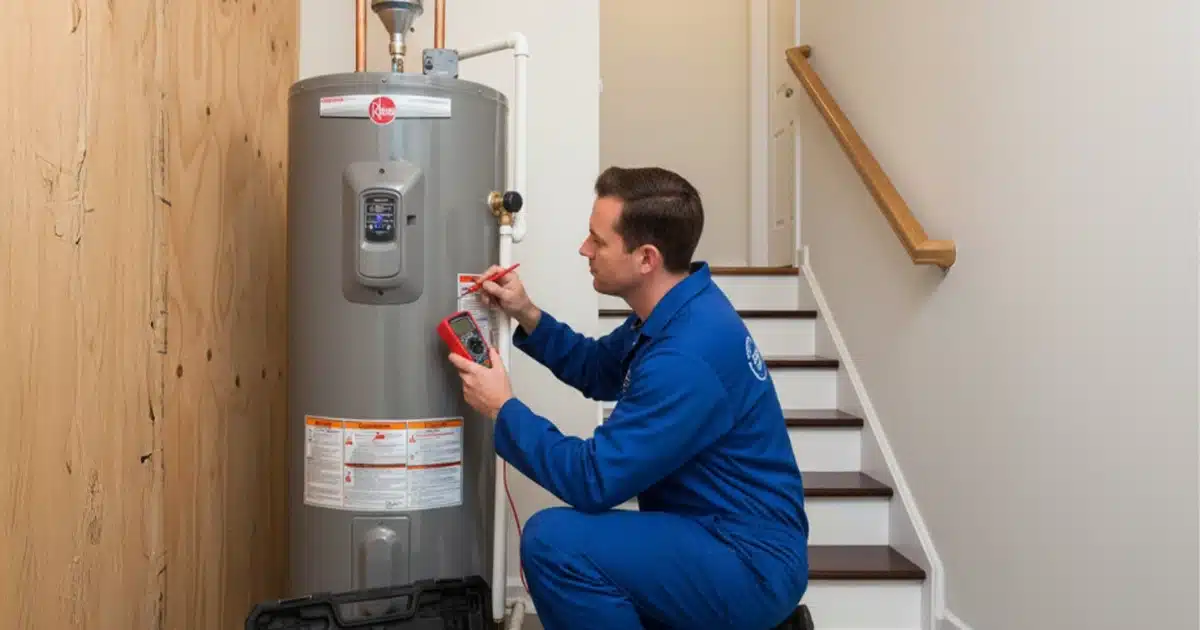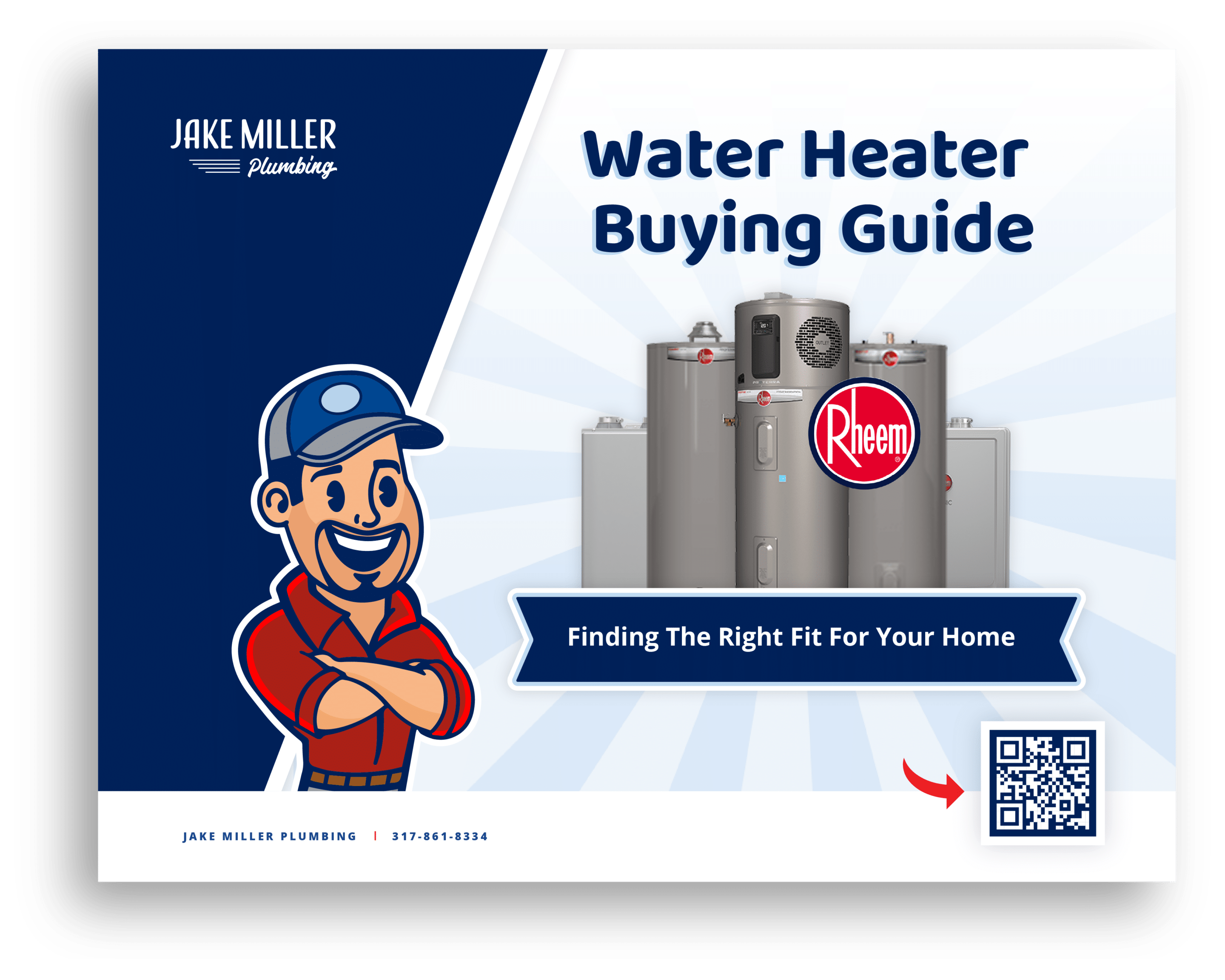Holiday guests put a heavy load on your water heater. A quick, professional tune‑up now can prevent cold‑shower surprises and help the system run safer and more efficiently. Below is a simple checklist plus what we check as pros—so you know what’s covered and when to call.
A water heater tune‑up checks safety and efficiency items: flush sediment, test the T&P valve, inspect the anode rod, verify thermostat settings, examine venting and combustion (gas), check electrical connections (electric), inspect expansion tank, and look for leaks/corrosion. Schedule service before holiday demand ramps up.
Why A Tune‑up Before Holiday Hosting?
Higher demand (more showers, dishwashing, laundry) exposes weak components. Flushing sediment can improve efficiency and recovery, while safety checks (like testing the T&P relief valve) help prevent dangerous pressure conditions. Annual flushing and periodic anode‑rod inspection are standard best practices.
The 8‑Point Homeowner + Pro Checklist (When In Doubt, Call The Professionals)
- Flush sediment from the tank — Draining helps remove mineral buildup that reduces efficiency and can cause noise or premature wear. Annual flushing is widely recommended.
- Test the T&P relief valve — A quick lift test ensures it opens and reseats; if it leaks or won’t reset, call a pro.
- Inspect the anode rod — This sacrificial rod protects the tank from corrosion. Replace when the core is exposed or rod is severely depleted.
- Verify thermostat settings (~120°F) — Helps reduce scald risk and energy use while meeting most household needs. The Department of Energy’s Energy.gov
- Check venting and combustion air (gas units) — Look for backdraft signs, secure vent joints, and proper clearances.
- Inspect electrical connections (electric/HPWH) — Tighten connections; review error codes if present.
- Look for leaks/corrosion — Examine fittings, T&P discharge line, drain valve, and tank base for moisture or rust.
- Review expansion tank + water pressure — Confirm the expansion tank holds air and matches house pressure to protect valves and fixtures.
Hard Water In Central Indiana: Why Maintenance Matters
Much of our region’s water is considered very hard—Indianapolis water, for example, typically ranges 200–425 ppm (12–25 gpg), which increases sediment formation and stresses water‑heating components. That’s another reason annual flushes and anode checks pay off.
What We Do On A Professional Visit
- Full safety & functionality check: T&P valve test; combustion/venting (gas); electrical review (electric/HPWH).
- Performance gains: Sediment flush, thermostat calibration, and recommendations to improve recovery time. The Department of Energy’s Energy.gov
- Rheem‑focused care: We service and install Rheem systems, including tankless models that can offer high efficiency and continuous hot water when sized correctly.
When Tune‑up Findings Point To Replacement
- Tank leaks or severe corrosion around the base
- Frequent pilot/ignition failures (gas) or repeated element/thermostat issues (electric)
- Chronic recovery time problems under normal demand
If replacement makes more sense, we’ll show clear options for Rheem tank or tankless units—and current coupons ($200 OFF tank‑type or $450 OFF tankless with installation).
Quick “Away For The Holidays” Checklist
If you’ll be traveling during a hard‑freeze window, open sink‑cabinet doors for airflow and let vulnerable fixtures drip to keep water moving; outdoor hose bibs should be shut off and drained. These small steps reduce freeze risk. National Weather Service+1
FAQs
Q: How often should you flush a water heater?
A: Most guidance suggests annually, especially in hard‑water areas. Flushing removes sediment that can reduce efficiency and shorten lifespan.
Q: When should an anode rod be replaced?
A: Inspect regularly; replace when the core is exposed or the rod is heavily depleted to maintain tank protection. MyRheem Files
Q: Is 120°F hot enough for a home?
A: For most homes, ~120°F balances comfort, efficiency, and scald safety. Certain use‑cases may differ—ask your tech. The Department of Energy’s Energy.gov
Q: What’s different about a tankless tune‑up?
A: Tankless systems need periodic descaling and filter cleaning (often every 6–12 months depending on hardness and use). Rheem USA
Hosting This Season?
Keep hot water steady—schedule service or call 317‑861‑8334.
Prefer worry‑free upkeep? Join our Plumber for Life program (priority service + savings).
Author: Jake Miller, Licensed Plumber



